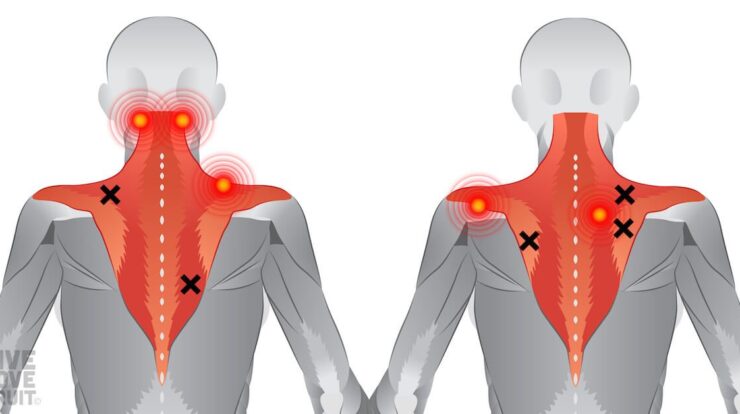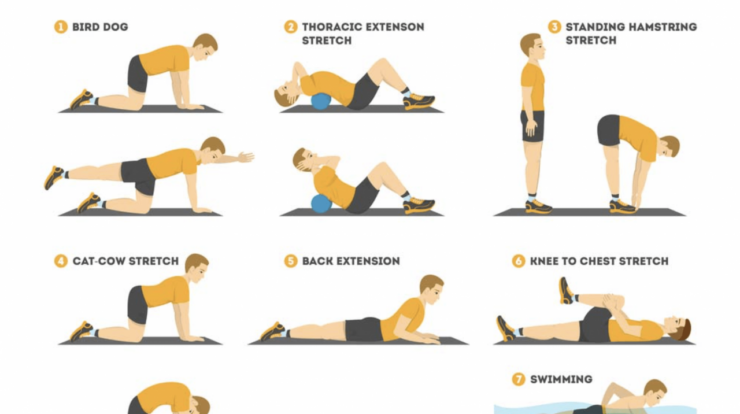
How to cure gum disease without a dentist – Suffering from gum disease? Don’t despair! You can take matters into your own hands and cure gum disease without a dentist. From natural remedies to home care and lifestyle changes, we’ve got you covered. Get ready to kiss gum disease goodbye and restore your oral health today!
Natural Remedies for Gum Disease
Gum disease is a common problem that can lead to serious health issues if left untreated. While traditional dental treatments are effective, they can also be expensive and time-consuming. Natural remedies offer a more affordable and convenient alternative to traditional treatments.Natural
remedies for gum disease can help reduce inflammation, kill bacteria, and promote healing. They are generally safe and well-tolerated, but it is important to talk to your doctor before using any natural remedies, especially if you are pregnant or breastfeeding.
Essential Oils
Essential oils are concentrated plant oils that have been shown to have a variety of health benefits. Some essential oils, such as tea tree oil, peppermint oil, and clove oil, have antibacterial and anti-inflammatory properties that can help treat gum disease.To
use essential oils for gum disease, add a few drops of the oil to a glass of water and swish it around your mouth for 30 seconds. You can also add a few drops of the oil to your toothpaste or mouthwash.
Turmeric
Turmeric is a spice that has been used in traditional medicine for centuries. It contains a compound called curcumin, which has powerful anti-inflammatory and antioxidant properties. Curcumin has been shown to be effective in reducing inflammation and pain in the gums.To
use turmeric for gum disease, mix a teaspoon of turmeric powder with a little water to form a paste. Apply the paste to your gums and leave it on for 10-15 minutes. Rinse your mouth thoroughly with water.
Aloe Vera, How to cure gum disease without a dentist
Aloe vera is a succulent plant that has been used for its medicinal properties for centuries. It contains a number of compounds that have anti-inflammatory, antibacterial, and healing properties. Aloe vera has been shown to be effective in reducing inflammation and pain in the gums.To
use aloe vera for gum disease, break off a leaf from the plant and squeeze out the gel. Apply the gel to your gums and leave it on for 10-15 minutes. Rinse your mouth thoroughly with water.
Gum disease can be a real pain, but it doesn’t have to be. If you’re looking for a way to cure gum disease without a dentist, there are plenty of options available. Click here to learn more about how to cure gum disease without a dentist.
Home Care for Gum Disease: How To Cure Gum Disease Without A Dentist

Maintaining good oral hygiene is essential for preventing and treating gum disease. Proper brushing and flossing techniques, along with the use of mouthwashes and other oral hygiene products, can help remove plaque and bacteria from the teeth and gums, reducing inflammation and promoting healing.
Brushing and Flossing
Brush your teeth twice a day with a soft-bristled toothbrush and fluoride toothpaste. Use gentle circular motions and brush for at least two minutes, making sure to reach all surfaces of your teeth, including the insides, outsides, and chewing surfaces.
Floss once a day to remove plaque and bacteria from between your teeth, where your toothbrush can’t reach.
Mouthwashes and Other Oral Hygiene Products
Mouthwashes can help kill bacteria and reduce inflammation in the gums. Choose a mouthwash that contains fluoride or other antibacterial ingredients. Tongue scrapers can help remove bacteria from the tongue, which can contribute to bad breath and gum disease. Regular dental checkups and cleanings are also important for maintaining good oral health and preventing gum disease.
Gum disease is a common problem that can lead to serious health issues if left untreated. While seeing a dentist is the best way to get treatment, there are some things you can do at home to help cure gum disease.
For more information on how to cure gum disease without a dentist, click here . You can also try using a mouthwash that contains chlorhexidine, which is an antibacterial agent that can help to kill the bacteria that cause gum disease.
Lifestyle Modifications for Gum Disease

Gum disease, also known as periodontal disease, is a common condition that affects the gums and supporting structures of the teeth. While it is often caused by poor oral hygiene, certain lifestyle factors can also contribute to its development and progression.
Making healthy lifestyle changes can significantly improve gum health and reduce the risk of gum disease. Here are some key recommendations:
Quitting Smoking
Smoking is one of the most significant risk factors for gum disease. The chemicals in cigarettes damage the gum tissue and blood vessels, making them more susceptible to infection and inflammation. Quitting smoking is the single most important step you can take to improve your gum health.
Reducing Stress
Stress can weaken the immune system, making it more difficult for the body to fight off infections. Chronic stress can also lead to poor oral hygiene habits, such as neglecting to brush or floss regularly. Finding healthy ways to manage stress, such as exercise, meditation, or yoga, can benefit both your overall health and your gum health.
Maintaining a Healthy Diet
A healthy diet is essential for overall health, including gum health. Eating a diet rich in fruits, vegetables, and whole grains provides the body with the nutrients it needs to maintain healthy gums. Limiting sugary and processed foods can also help reduce the risk of gum disease.
When to See a Dentist for Gum Disease

If you experience any of the following signs or symptoms of gum disease, it’s crucial to schedule an appointment with a dentist:
Bleeding Gums
Healthy gums should not bleed when you brush or floss. Bleeding gums are a common sign of gum inflammation, indicating the presence of bacteria and plaque.
Gum disease is a serious issue that can lead to tooth loss if left untreated. While it’s important to see a dentist for regular checkups, there are some things you can do at home to help prevent and treat gum disease.
For more information on how to cure gum disease without a dentist, check out this article that provides step-by-step instructions on how to cure gum disease without a dentist.
Swollen, Red, or Tender Gums
Gum inflammation can cause the gums to become swollen, red, and tender. This can make it uncomfortable to brush or floss, leading to further neglect and worsening of the condition.
Receding Gums
As gum disease progresses, the gums may start to recede, exposing the roots of your teeth. This can make your teeth appear longer and increase their sensitivity to hot and cold.
Loose Teeth
Severe gum disease can damage the supporting structures of your teeth, causing them to become loose. This can make it difficult to eat and speak properly.
Pus Between Gums and Teeth
The presence of pus between the gums and teeth is a sign of a gum infection. This infection can spread to other parts of your mouth and body if left untreated.
If you’re wondering how to cure gum disease without a dentist, there are a few things you can do. You can try using a mouthwash that contains chlorhexidine, which is an antibacterial agent that can help to kill the bacteria that cause gum disease.
You can also try using a toothpaste that contains fluoride, which can help to strengthen your teeth and prevent cavities. If you have severe gum disease, you may need to see a dentist for treatment. However, if you catch it early, you may be able to cure it yourself with some simple home remedies.
For more information on how to cure gum disease without a dentist , check out this helpful guide.
Bad Breath
Gum disease can cause persistent bad breath due to the accumulation of bacteria and plaque in the mouth.
Importance of Early Detection and Treatment
Early detection and treatment of gum disease are essential to prevent serious complications. Gum disease can lead to tooth loss, bone loss, and other health problems if left untreated.
Advanced Treatment Options for Gum Disease

When gum disease progresses to an advanced stage, it may require more intensive treatment options beyond basic home care and lifestyle modifications. These advanced treatments aim to remove bacteria, repair damaged tissue, and prevent further progression of the disease.
Surgical Treatment Options
Surgical treatment options for gum disease involve procedures performed by a dentist or periodontist. These procedures aim to remove diseased tissue, reshape bone, and improve the overall health of the gums.
- Flap Surgery:Involves lifting back the gum tissue to access and clean the roots of the teeth. The dentist removes tartar, bacteria, and diseased tissue, and then repositions the gums to fit snugly around the teeth.
- Bone Grafting:Used when bone loss has occurred due to gum disease. The dentist places bone grafting material into the affected area to stimulate bone growth and support the teeth.
- Tissue Grafting:Involves taking healthy gum tissue from another area of the mouth or from a donor and grafting it onto the affected area to replace lost tissue.
Non-Surgical Treatment Options
Non-surgical treatment options for advanced gum disease aim to control the infection and prevent further progression. These treatments are often used in conjunction with surgical options.
- Scaling and Root Planing:A deep cleaning procedure that involves removing tartar and bacteria from below the gum line and smoothing the root surfaces of the teeth.
- Laser Therapy:Uses a laser to kill bacteria and remove diseased tissue without damaging healthy tissue.
- Antibiotics:May be prescribed to fight bacterial infections and reduce inflammation.
The choice of treatment method depends on the severity of the gum disease, the patient’s overall health, and the dentist’s assessment. Recovery time varies depending on the procedure, but typically involves several weeks of healing and follow-up appointments. With proper treatment and maintenance, advanced gum disease can be managed and further progression can be prevented.
Final Conclusion
With a little effort and dedication, you can cure gum disease without a dentist. Remember, prevention is always better than cure, so make oral hygiene a priority and adopt healthy lifestyle habits. Your gums will thank you for it!
FAQ Explained
Can I cure gum disease permanently?
While gum disease cannot be completely cured, it can be effectively managed and reversed with proper care and treatment.
How long does it take to cure gum disease naturally?
The time it takes to cure gum disease naturally varies depending on the severity of the condition and the effectiveness of the remedies used. However, with consistent effort, you can expect to see improvements within a few weeks or months.
Is it safe to treat gum disease at home?
While some home remedies can be effective in managing mild gum disease, it’s crucial to consult a dentist for professional advice and treatment if the condition is severe or persistent.





